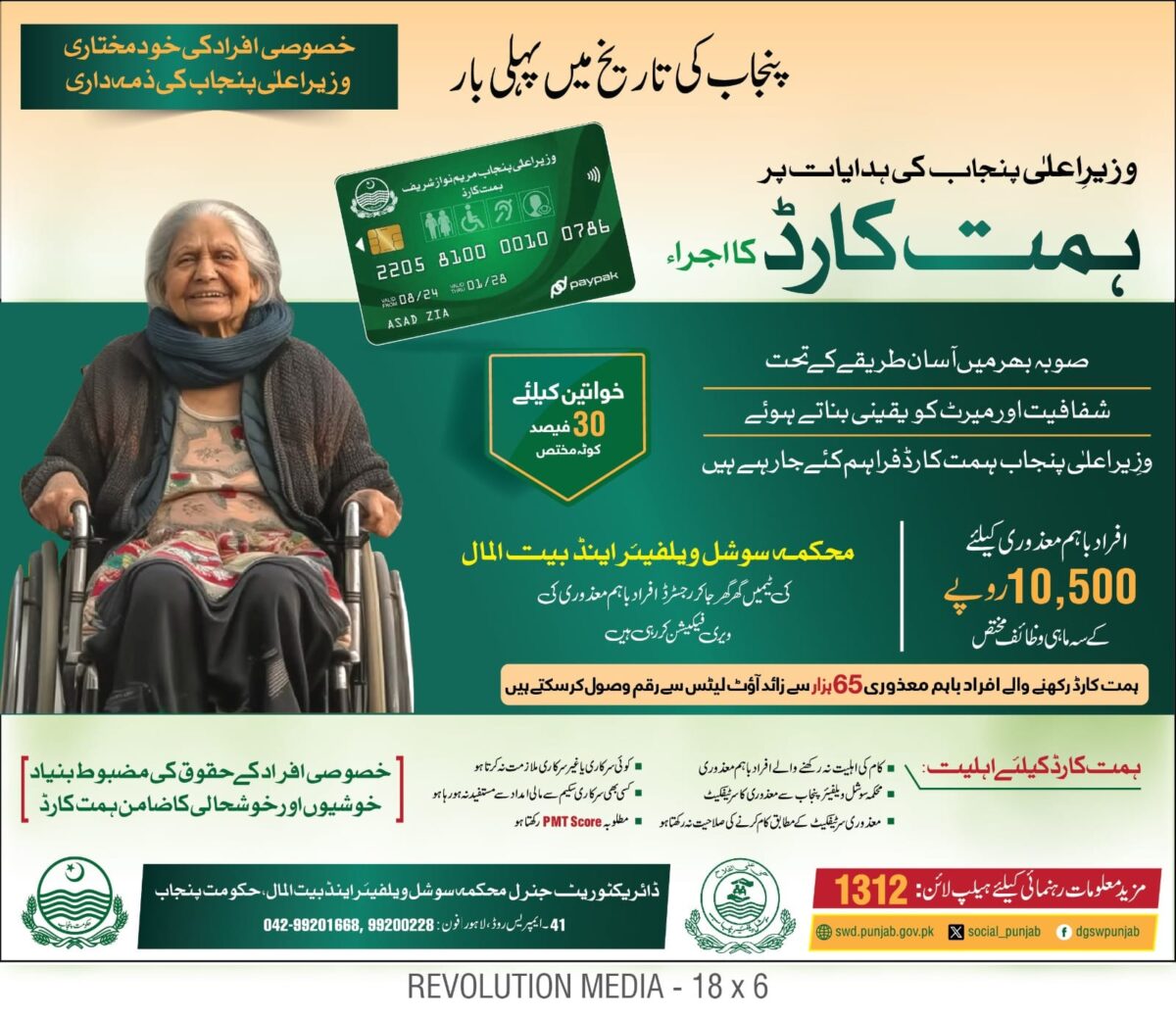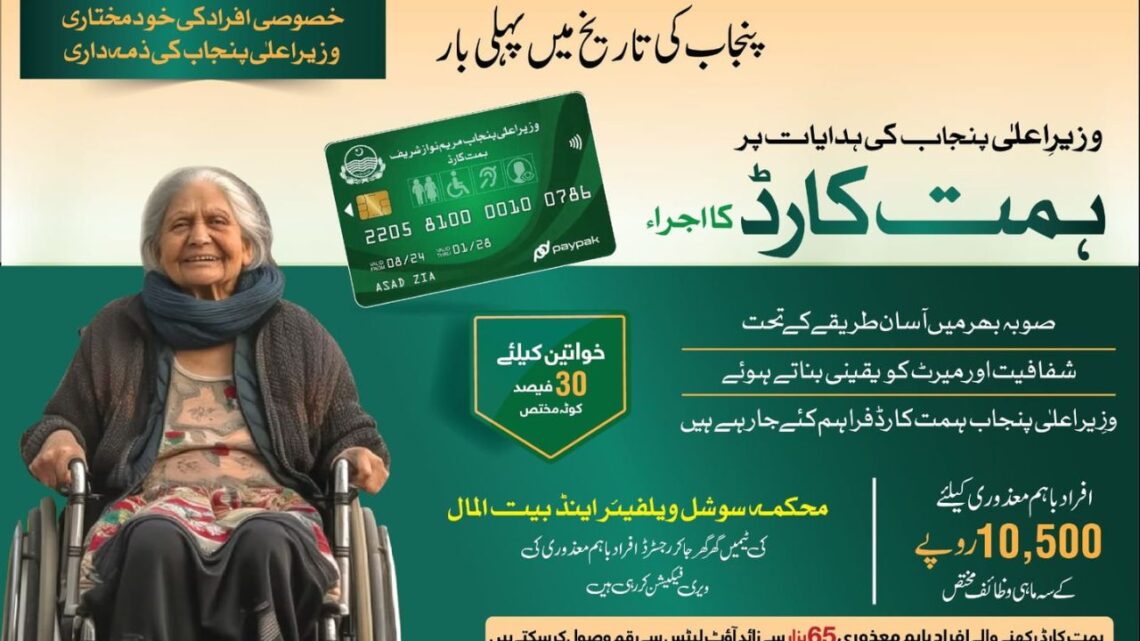For the first time in history, the Punjab Government, under the leadership of Chief Minister Punjab, has launched the Himmat Card initiative. This program is a groundbreaking effort to ensure transparency and empower special individuals with easy access to financial aid across the province.

Read More: CM Maryam Nawaz Sharif Launches Honahar Scholarship Program
Key Features of the Himmat Card:
- The Himmat Card is aimed at providing financial assistance to people with disabilities, offering a monthly stipend of PKR 10,500 per individual.
- 30% quota reserved for women, ensuring that female beneficiaries also receive adequate support.
- The initiative is managed by the Punjab Social Welfare and Bait-ul-Maal Department, a key entity in the welfare ecosystem of the region.
- The process is highly transparent, with efforts made to streamline the distribution of funds and eliminate any complexities.
Eligibility Criteria:
- Individuals can apply for the Himmat Card if they are registered with the NADRA database and their status as a person with a disability is verified.
- Applicants must achieve the minimum PMT (Proxy Means Test) score to qualify for the program.
- Those already registered with the Punjab Social Welfare Department can apply for the Himmat Card directly.
How to Apply:
Eligible individuals can easily apply for the Himmat Card by contacting the Social Welfare Department, which has provided a hotline number (1312) for inquiries and assistance. They can also visit the Social Welfare Office located at 41-Empress Road, Lahore for further information.
The initiative is designed to prioritize the dignity and rights of persons with disabilities, offering them a means to uplift their quality of life. The Himmat Card symbolizes a commitment to inclusivity, empowering individuals to pursue their goals without financial constraints.
For more information, beneficiaries can contact the provided helpline numbers (042-99201688, 99200228) or visit the official SWD Punjab website.
This project is a significant step toward ensuring social equity and providing direct support to the most vulnerable members of society.
















